#PCOD & PCOS
Text
ND Health.AI — Your Destination for Diabetes Reversal and Dyslipidemia Treatment

Discover effective solutions for diabetes reversal and dyslipidemia treatment naturally at ND Health.AI. Our personalized programs cater to type 2 diabetes reversal, pre-diabetes prevention, and PCOD/PCOS management. Take charge of your health today!
Welcome to ND Health.AI: Your Premier Destination for Holistic Health Solutions
At ND Health.AI, we understand the pressing need for effective, natural solutions to prevalent health concerns like diabetes reversal naturally dyslipidemia, and PCOD PCOS. Our comprehensive approach combines cutting-edge AI technology with holistic health principles to provide personalized programs tailored to your unique needs.

Our Featured Programs:
Diabetes Reversal Program:Explore our innovative diabetes reversal program designed to help you regain control of your health. With a focus on natural methods and lifestyle modifications, our program empowers you to manage and potentially reverse type 2 diabetes.
2.Dyslipidemia Treatment:Combat dyslipidemia effectively with our evidence-based treatment protocols. Our approach targets underlying causes and focuses on lifestyle adjustments, dietary modifications, and supplementation to optimize lipid levels.
3.PCOD/PCOS Management:Find relief from PCOD/PCOS symptoms with our specialized management program. Our holistic approach addresses hormonal imbalances, insulin resistance, and lifestyle factors to promote hormonal harmony and overall well-being.

Why Choose ND Health.AI?
Personalized Approach: Our programs are tailored to your specific health profile and goals, ensuring optimal outcomes.
Evidence-Based Solutions: Backed by scientific research and clinical expertise, our interventions are proven to deliver results.
Supportive Community: Join a supportive community of individuals on a similar health journey, and benefit from shared experiences and encouragement.
Cutting-Edge Technology: Leveraging AI technology, we continuously refine and enhance our programs to deliver the most effective solutions.
Take the first step towards a healthier, happier you with ND Health.AI. Explore our website to learn more about our programs, meet our team of experts, and embark on your journey to optimal health today.
For more information:
0 notes
Text
Why should women avoid having milk in PCOD/PCOS?
Why should women avoid having milk in PCOD/PCOS?
Due to unhealthy lifestyle, unhealthy eating habits, stress, anxiety and excessive use of cosmetics many women are suffering from hormonal imbalance issues these days and PCOD/PCOS is one such issue.
Although exact cause of PCOS/PCOD is still unknown to date but above mentioned factors and heredity surely contribute to it. In PCOS/PCOD, body becomes inflamed and insulin resistant due to…
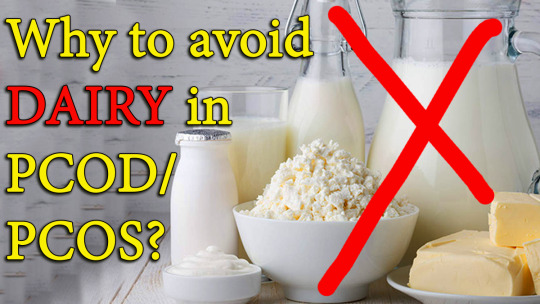
View On WordPress
#best milk for pcod pcos#Dairy foods in PCOD PCODS#disturbed hormones#foods to be avoided in pcos pcod#hormonal issues#Hormone imbalance#male hormones in females#milk and milk products in pcod#pcod#pcod pcos#pcos#PCOS and dairy foods#vegan milk#what to avoid in pcos#why is milk harmful for pcod#why should milk be avoided in pcos
0 notes
Text


My Personal Goal Progress and Steps to Achieving Them: Part 3, Skin Care
Hello there. For today’s article, I decided to talk about what my personal goals are and how I plan to go about reaching them.
I’ve realised that I’ve made a lot of content on creating goals, but I haven’t shown how it works for me with real life examples. Maybe showing this little insight in my life will help you manage your own goals better.
My Goals for 2022-end
* Read 6 books
* Lose 5 inches off my lower waist
* Get rid of acne scars
* 20 Medium articles by the end of the year
* Go back to playing tennis
* Be able to read the language I’m studying fluently
Getting rid of my acne scars. Phew!
I struggled with acne because of PCOS for many years. Let me get straight to the point- Accutane, in my experience and my friends, is the only drug that 100% works.
I tried everything. I tried the herbal methods, I tried cutting dairy out, I went as far as having collagen injected into my face- nothing worked. Until I completed one round of Accutane, which I began in April.
I did experience a slight purge but the way my active acne went away… miraculous. Why didn’t my doctor give this to me before?!
The reality is that to treat acne scars you have to be treating the acne as well. So here’s what I use for my skin in addition to the meds:
Morning
- Cerave face wash
- Toner
- Vitamin C from Sephora
- Sunscreen
- Moisturiser
- Make up
Evening
- Cerave face wash
- Toner
- High Frequency: Neon (bought it from Amazon, I try to do this everyday for 1.5 minutes on my face)
- Sacara goji berry moisturiser
- MeDerma intensive repair scar cream (the overnight one)
- High Frequency: Argon (bought it from Amazon, I try to do this everyday for 1.5 minutes on my face)
Once a week
- The ordinary’s AHA+BHA red serum
- Clay mask for my oily skin
- Steam face + remove blackheads
- Remove facial hair
You can see my progress below.
(row one, L-R) Pic 1: April 2022, Pic 2: May 2022
(row two, L-R) Pic 3: April 2022, Pic 4: August 2022

#c suite#powerful woman#ceo aesthetic#personal growth#that girl#productivity#strong women#getting your life together#feminine energy#balance#acne#acne treatment#acne scars#pcos#pcod#pcod problem symptoms#pcos women#skin#skincare#get rid of acne#Accutane#Accutane experience#scarring#scars#skin treatment#skin routine#morning routine#evening routine#skin goals#glass skin
82 notes
·
View notes
Text
Top 10 Tips for Practicing Yoga While Pregnant
If you’re expecting a baby, you may be wondering how to incorporate yoga into your pregnancy. Practicing yoga during pregnancy has many benefits - it can help to reduce stress and boost energy levels, as well as improve strength and flexibility. In this blog post, we’ll discuss the top 10 tips for practicing yoga while pregnant, so you can make the most of your prenatal yoga practice.
1) Get the all-clear from your GP before you start
It's important to check with your GP or midwife before beginning any exercise routine while pregnant, especially when it comes to yoga. This is because the postures and breathing exercises that makeup yoga can have different effects depending on the individual. Having a medical professional's opinion will ensure you're engaging in safe, beneficial practices. Speak to your healthcare provider about any potential risks so you can make an informed decision about practicing yoga during pregnancy.
2) Join a class led by a qualified teacher
Attending a yoga class led by a qualified instructor is one of the best ways to practice yoga safely during pregnancy. A good instructor can show you how to modify poses and make sure that your practice is tailored to the changes happening in your body. An experienced yoga instructor will know what is safe and beneficial for pregnant women and can make adjustments to the class accordingly. Practicing with an experienced instructor will also help to keep you motivated, encouraged and supported throughout your pregnancy.
3) Listen to your body
Prenatal yoga classes are a great way to learn which poses are safe during pregnancy. While practicing yoga, be sure to pay attention to your body's cues. If a pose is causing discomfort or pain, stop immediately and adjust your position or switch to a different pose. When listening to your body, it's best to opt for gentler movements and take regular breaks. Avoid holding poses for too long, as this can increase your risk of injury. Finally, ensure that you get the all-clear from your doctor before starting any prenatal yoga classes.
4) Drink plenty of water
Staying hydrated is especially important when practicing yoga during pregnancy. Make sure to drink water before, during and after your practice to keep yourself hydrated. Avoid caffeinated drinks and sugary juices as they can contribute to dehydration. Keeping a bottle of water on hand and sipping throughout your practice can help ensure that you stay hydrated throughout your session.
5) Avoid hot yoga
When practicing yoga during pregnancy, it's important to avoid hot yoga or any class with high temperatures. Pregnant women are more sensitive to heat and can overheat quickly, which can cause problems for the baby. Instead, opt for classes in a well-ventilated space with a comfortable temperature that won't cause you to sweat too much. This will help keep you and your baby safe and comfortable while you practice.
6) Don't push yourself
If you're new to yoga, or pregnant, it's important to take things slowly and not push yourself too hard. Modify poses as necessary, and listen to your body
7) Modify poses as necessary
If a pose doesn't feel right, don't be afraid to modify it. Listen to your body and make whatever adjustments you need to in order to feel comfortable.
8) Use props
Props can be very helpful when practicing yoga during pregnancy. For example, using a yoga block can help you maintain proper alignment in certain poses.
9) Focus on your breath
Breathing is an important part of yoga, and it can be especially helpful during pregnancy. Taking deep, cleansing breaths can help you relax and focus.
10) Relax and enjoy!
Pregnancy is a time to relax and enjoy your body. Don't put too much pressure on yourself to do Advanced poses or to be perfect. Just focus on enjoying the experience and connecting with your baby.
#pregnancy yoga#prenatal yoga#exercise#health tips#yoga tips#postnatal yoga#natural birth#baby care#fitness#lactating women#best pcos treatment kolkata#pcod problem treatment#yogainspiration#online yoga classes#fertility yoga#pregnancy massage#pregnant#maternity#womens health and fitness
13 notes
·
View notes
Text
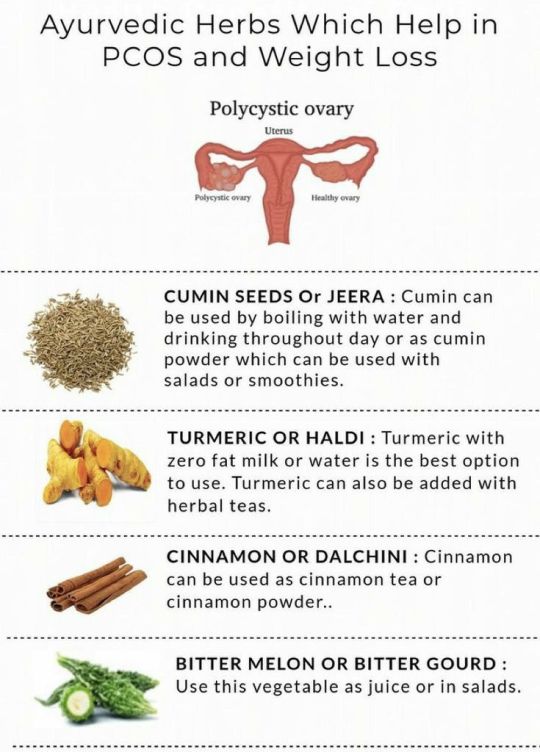
PCOS occurs due to long-term irregular mensuration problems. Our ayurvedic medicine consists of syrup, capsules and tablets. Helps in regaining reduces excess bleeding, and reduces itching and inflammation. The benefit of using an ayurvedic treatment for PCOS gives long-lasting relief without any side effects.
#Ayurvedic medicine for pcos#Ayurvedic medicine for pcod#Pcod treatment in ayurvedic#Ayurvedic treatment for pcos#Ayurvedic treatment for pcod#Pcod ayurvedic medicine
2 notes
·
View notes
Text
PCOD / PCOS
PCOS, or Polycystic Ovarian Syndrome, has become increasingly common among women of reproductive age in recent years. Women who have this condition may have irregular or altered menstrual cycles. The ovaries may also grow a lot of fluid-filled sacks that are incapable of releasing eggs. An endocrine disorder called PCOS/PCOD is a major contributor to infertility. Subfertility is a term used to describe a condition where a person is trying to get pregnant but is having a difficult time.
Best Ayurveda treatment for PCOD and PCOS
SYMPTOMS OF PCOS/PCOD
These are some of the typical PCOS/PCOD symptoms.
Period irregularities: Women may experience irregular menstrual cycles.
Missed Periods: Missed periods may occasionally last a long time. This may continue for several months.
Severe bleeding: This is caused by a thicker than usual uterine lining. Females can have prolonged periods of heavy bleeding.
Hair growth: The back, belly, chest, and face may all experience excessive hair growth. This ailment, also known as hirsutism, can be an annoying PCOS symptom.
Acne: Areas like the face, chest, and back are more likely to experience breakouts.
Obesity: Studies have shown that managing one’s weight can significantly lessen the symptoms of PCOS in up to 80% of females who have the condition.
Hair thinning and loss: Women with PCOS/PCOD may experience hair thinning and loss. The body’s overabundance of androgens is the cause of this.
Skin darkening: The nose, groin, under the breasts, and other places may develop dark skin pigmentation or patchy skin growth.
Headaches: A hormonal imbalance known as PCOS or PCOD can occasionally result in headaches.
Pelvic pain and fatigue: Women with PCOS may experience feelings of discomfort, such as pain in the pelvic area, along with fatigue.
REASONS BEHIND PCOS
High levels of androgen
A woman’s body contains a small amount of male hormones known as androgens. However, in PCOS, the amount of male hormones increases, which can prevent the ovaries from producing eggs during the monthly menstrual cycle. This can cause acne and excessive hair growth in women, which is one of the main symptoms of PCOS.
High levels of insulin
The insulin hormone is in charge of regulating the body’s glucose levels. PCOS is a condition in which many women have insulin resistance, which means that the glucose in the blood is not being used properly by their cells. Women are more likely than men to have a family history of Type 2 Diabetes. To avoid Type 2 Diabetes in the future, lifestyle changes are advised.Obesity and unhealthy lifestyle leads to PCOS
AYURVEDIC APPROACH TO PCOD/PCOS / Best Ayurveda treatment for PCOD and PCOS
According to the ancient texts of Ayurveda, it is referred to as “Granthi” in some cases, which refers to the development of abnormalities such as cysts, ulcers, lumps, or tumors. According to Ayurveda, PCOS is caused by imbalance of Rasa and Rakta Dhatus, as well as an imbalance in the three Doshas of the body (Vata, Pitta, and Kapha). These Rasa-Rakta Dhatus are weakened as a result of Dosha imbalance and Ama (toxins) buildup in the body. This can result in cyst formation and other PCOS symptoms.
Normally, the Vata Dosha dominates the reproductive system, and the female reproductive organs are made of “Artava Dhatu,” which nourishes the ovum. Vata Dosha is in charge of the follicle and ovum movement into the uterine fallopian tubes. The sub-dosha “Apana Vayu” is in charge of the downward flow or menstrual flow. Pitta Dosha is important for hormone production and balance in the body. The Kapha Dosha is in charge of nourishing and promoting follicle, uterine, and ovum tissue growth. As a result, a harmonious balance of the three Doshas is essential for producing healthy hormones and maintaining the health of the female reproductive system.
Best Ayurveda treatment for PCOD and PCOS
Ayurveda, as a holistic system of treatment, provides an all-encompassing treatment approach that addresses the underlying cause of this condition. This treatment can be tailored to an individual’s needs, and it is always best to consult an Ayurvedic expert before beginning any treatment or therapy. The goal of Ayurveda Treatment for PCOD is to-
Ayurvedic detoxification of the body to remove accumulated toxins
The female reproductive system should be strengthened, revitalized, and nourished.
Maintaining the body’s hormonal balance
Weight loss and insulin resistance correction
AYURVEDA DIET FOR MANAGING PCOS/PCOD SYMPTOMS:
The goal of following this Ayurvedic diet is to nourish the Aartava Dhatu in females.
Organic fruits and vegetables, such as raisins, pears, plums, dates, and figs, should be consumed by PCOS women. Fruits and berries in season should be included in the diet.
To boost the Agni (Digestive fire), avoid spicy foods, fermented foods, dairy products, buttermilk, and so on.
Consume Ragi (nachini, Eleusine coracana) grains.
Avoid taking added sugar or sugary foods, as well as artificial sweeteners.
AYURVEDA TREATMENT FOR PCOD INVOLVES-
Herbs like Ashwagandha, Turmeric, Shatavari, Varuna, Haritaki, Pippali, Bilva, Agnimantha, Punarvana, Guduchi, Chitraka, Shunthi, Dashmool, Shatapushpa, and others are very effective for balancing the tridoshas and Dhatus.
Panchakarma, ayurvedic therapies, Yoga and breathing exercises (Pranayama) . Dietary changes include increasing the consumption of fruits, vegetables, and whole grains while decreasing the consumption of saturated fats, salt, refined sugar, and refined carbs.
Varunadi Kashaya, Chitrakadi Vati, Triphala Guggulu, Punarvadi Kashaya, Shatavari Gulam, and other Ayurvedic formulations are effective.
PANCHAKARMA TREATMENT FOR PCOS/PCOD / Best Ayurveda treatment for PCOD and PCOS
Panchakarma Treatment is recommended to treat the underlying cause by removing toxins from the reproductive system and empowering the various organs such as the uterus, ovaries and Fallopian tubes. This Panchakarma Treatment also aids in the maintenance of the body’s hormonal balance.
Vamana
This is a cleansing technique used primarily to expel vitiated ‘Kapha.’ In PCOS, Vamana (therapeutic emesis or therapeutic vomiting) process helps to balance the vitiated kapha dosha.
Virechana
This therapy aids in the restoration of the vitiated Pitta Dosha. It involves cleansing the small intestine and improves Dosha elimination via the rectal route. It restores the female body’s hormonal balance.
Basti (Vastu)
This panchakarma therapy, which uses various types of herbal oils, Ghruta, milk, and other decoctions, is extremely effective in balancing the vitiated Vata Dosha. When specific oils are used for Basti, it aids in the regularisation of ovulation. So, Basti can help with infertility treatment, hormone balancing, PCOS treatment, fallopian tube blockage removal, and so on.
Uttarbasti (Vasti)
Uttarbasti (Vasti) is a highly effective treatment for gynecological conditions. In the case of PCOS, Uttarbasti aids in the dissolution of ovarian cysts, the flushing of the Aartava Vaha Srotas, the pacification of the vitiated Apana Vayu, and the increase of follicular maturity.
Fertility Massage
This is a gentle massage of the lower abdomen performed in a specific pattern to improve the natural functioning of the uterus. It also improves blood circulation in the lower pelvic region.
2 notes
·
View notes
Text

Top 5 Effective Yoga Mudras For PCOS
Top 5 effective yoga mudras for PCOS that can give you relief from menstrual pain and period cramps in a natural way. These yoga mudras for PCOS are very effective. You can try these exercises in your home.
5 notes
·
View notes
Photo

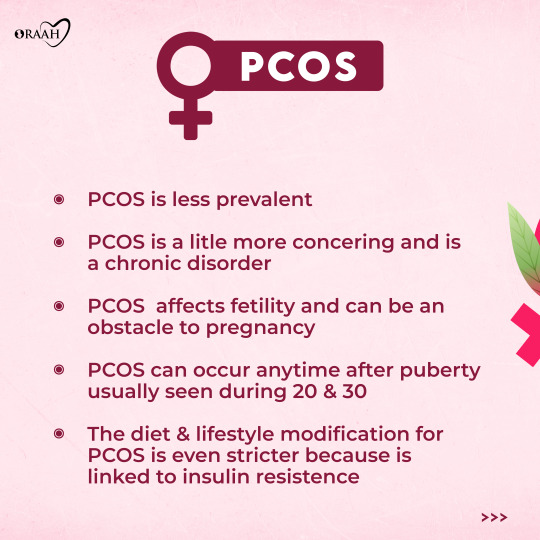

Are PCOD and PCOS the same 🤔?
A lot of women get confused between the two, often using the two terms interchangeably.
Here are a few differences between the two!
Tag someone who needs to know.
Follow @oraahwellness
#pcos vs pcod#pcos diet#pcos#pcos tea#PCOD diet#pcos symptoms#womens health#women healthcare#women#pcod problem symptoms#weight loss#health benefits#self love#pcos and pcod#pregnency#pcod problem treatment#difference between pcos and pcod#herbal lifestyle.#what is pcod#oraahwellness#hormones imbalance#viral#trending#blog on tumblr#post
4 notes
·
View notes
Text
BENEFITS OF YOGA FOR WOMEN
Yoga has numerous advantages for women. It can have a significant impact on your reproductive health as well as other health conditions.
Advantages of Yoga-
Yoga is an ancient and well-established form of exercise and relaxation. It has been done for centuries.
Yoga revitalises and revitalises the body, mind, and soul.
It can have a significant impact on an individual's physical and mental health.
It boosts your confidence and self-esteem by improving your own body image.
This improves your performance in daily life.
One significant advantage of yoga is that it can be done anywhere at a low cost. All that is required is a yoga mat.
How does yoga benefit women?
Yoga has numerous health benefits for women, including sexual health, menstrual pain, PCOS, and pregnancy.
How Yoga affects sexual health?
It has the potential to improve all aspects of sex life, including desire arousal, orgasm, and overall satisfaction.
Yoga and breathing exercises will help reduce stress, which will improve desire and performance as well as the relationship and intimacy.
It can strengthen the core muscles and pelvic floor muscles, which will improve sexual function.
How Yoga Helps in Pregnancy?
Yoga has numerous advantages during pregnancy.
It aids in the improvement of cardiac function by increasing cardiac output.
It strengthens the abdominal and pelvic floor muscles, as well as the core, which aids in pregnancy and delivery.
Breathing techniques are especially helpful in managing labour pains.
They improve blood and oxygen delivery to the baby during contractions and are especially helpful when pushing at full dilatation.
How Yoga helps in PCOS?
PCOS is a metabolic condition.
Insulin Resistance and Obesity PCOS is characterised by resistance and infertility.
Yoga can help with hormonal balance.
It also aids in thhttps://www.wanttogetpregnant.in/e regulation of blood sugar, insulin, and cholesterol levels.
Yoga improves the menstrual cycle and ovulation, which can lead to increased fertility.
It relieves stress, which is common in PCOS patients.
This raises cortisol levels, which is beneficial.
Weight management is an important part of PCOS management, and yoga can help with both weight loss and body toning.
How Yoga helps during Menstrual Cycle?
Menstruation is frequently associated with abdominal cramps, pelvic pain, backache, and thigh and leg pain. Periods can cause nausea, vomiting, bloating, headaches, and fatigue in some women. All of these symptoms can have an impact on one's quality of life and prevent women, particularly young girls, from going about their daily lives.
Yoga can help improve mental health so that you can deal with pain better.
Yoga helps to tone the muscles, reducing and sometimes completely eliminating pain and cramps.
Furthermore, it is simple to do, can be done anywhere, and has no side effects when compared to pain reliever medications, which all have side effects when used for an extended period of time.
#gynaecologist#gynaec#gynec#pregnancy#pcos#pcod#pcostreatment#ivf#highriskpregnancy#infertilitydoctor#gynecologistinkalyaninagar#gynecologistinshivajinagar#pune#drvaishalichaudhary#yoga#benefitsofyoga#pregnancyyoga
4 notes
·
View notes
Text

#diet#keto diet#healthy diet#weight loss diet plan#weight loss diet#diet plan#fat loss diet#diets#diet plan for weight loss#doctorola diet#kids diet#diet soda#best diet#diet food#pcod diet#pcos diet#pregnancy diet plan#pregnancy diet chart#model diet#diet chart#jadoo diet#paleo diet#diet pills#mark wahlberg diet plan#the ice diet#diet advice#diet doctor#low fat diet#indian diet#low carb diet
1 note
·
View note
Text
PCOS Bloating
PCOS Bloating is a condition that causes the uterus to be enlarged, which can lead to pain and discomfort during intercourse.
PCOS is an endocrine disorder that affects a woman’s ovaries, making it difficult for them to produce eggs. Some women may experience symptoms like weight gain, acne, and hair loss.
PCOS Bloating occurs when the ovaries are enlarged due to the hormone imbalance in the body. It can happen due to excess production of androgens in women with PCOS, which cause fluid retention in the abdomen and pelvic area.
Many people suffer from PCOS Bloating because they are unaware of the symptoms and how to treat it. This article will highlight what PCOS is, how it can affect someone’s health, and what you should do if you have this syndrome.
Click here to know more: https://www.thebasicswoman.com/blogs/blogs/how-to-beat-pcos-bloating
3 notes
·
View notes
Text
#pcod vs pcos#What is PCOS and PCOD?#What is PCOD problem?#What is PCOS problem?#differences between PCOS and PCOD#sprint medical#healthy eating#Common signs and symptoms of PCOS#Treatment for PCOD and PCOS
2 notes
·
View notes
Text
Natural Remedies to Cure PCOD and PCOS: A Comprehensive Guide
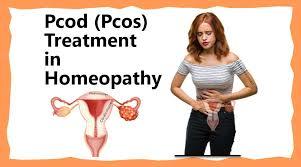
Discover natural remedies to cure PCOD and PCOS with Dr. Deepika's Homeopathy. This comprehensive guide explores effective homeopathic treatments, dietary changes, and lifestyle modifications to balance hormones, improve menstrual cycles, and enhance fertility. Embrace a holistic approach to manage your symptoms and achieve optimal health naturally.
Visit Us: https://drdeepikashomeopathy.com/pcod-pcos/
#how to cure pcod and pcos#homeopathy treatment for pcos#Best Homeopathy Doctor in Noida#best homeopathy doctor in gaur city#top homeopathic doctor in noida
0 notes
Text
Understanding PCOD/PCOS: What You Need to Know
Polycystic Ovary Syndrome, commonly referred to as PCOS, is a prevalent health condition affecting millions of women worldwide. It's a complex hormonal disorder characterized by various symptoms that can impact fertility, menstrual cycles, and overall well-being. Despite its prevalence, PCOS remains widely misunderstood. In this blog post, we'll delve into what PCOD/PCOS is, its causes, symptoms, diagnosis, and available treatments.
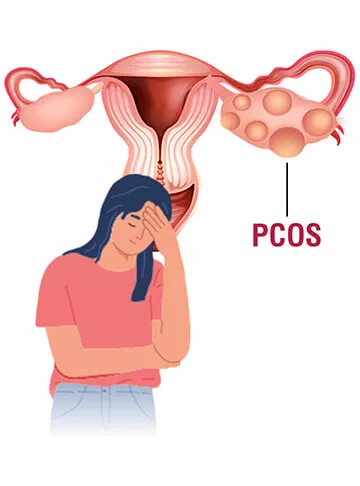
What is PCOD/PCOS?
PCOD (Polycystic Ovarian Disease) or PCOS (Polycystic Ovary Syndrome) is a hormonal disorder primarily affecting women of reproductive age. It is characterized by an imbalance in reproductive hormones, leading to irregular menstrual cycles, cysts on the ovaries, and various metabolic disturbances.
Causes of PCOD/PCOS
The exact cause of PCOD/PCOS is not fully understood, but it is believed to involve a combination of genetic and environmental factors. Some of the contributing factors may include:
1. Insulin Resistance: Many women with PCOS have insulin resistance, where the body's cells don't respond effectively to insulin, leading to high insulin levels. This can stimulate the ovaries to produce more androgens (male hormones), disrupting the menstrual cycle and leading to symptoms of PCOS.
2. Hormonal Imbalance: PCOS is associated with an imbalance in the hormones involved in menstruation and ovulation, including insulin, luteinizing hormone (LH), follicle-stimulating hormone (FSH), and testosterone.
3. Genetics: There appears to be a genetic component to PCOS, as it tends to run in families. Women with a family history of PCOS are at a higher risk of developing the condition.
4. Lifestyle Factors: Poor diet, lack of exercise, stress, and obesity can also contribute to the development and exacerbation of PCOS symptoms.
Symptoms of PCOD/PCOS
PCOS can manifest in various ways, and not all women will experience the same symptoms. Common symptoms include:
1. Irregular Menstrual Cycles: Women with PCOS may have infrequent, irregular, or prolonged menstrual cycles, or they may stop menstruating altogether.
2. Ovarian Cysts: Many women with PCOS have multiple small cysts on their ovaries, which are fluid-filled sacs.
3. Hirsutism: Excessive hair growth on the face, chest, back, or other areas of the body where men typically grow hair.
4. Acne: PCOS can cause persistent acne on the face, chest, and upper back.
5. Weight Gain: Many women with PCOS struggle with weight gain, particularly around the abdomen.
6. Hair Loss: Some women with PCOS experience thinning hair or hair loss from the scalp, known as female pattern baldness.
7. Infertility: PCOS is one of the leading causes of female infertility due to irregular ovulation or lack of ovulation.
Diagnosis and Treatment
Diagnosing PCOS involves a combination of medical history, physical examination, and various tests, including blood tests to measure hormone levels, ultrasound to examine the ovaries, and other tests to rule out other possible conditions with similar symptoms.
Treatment for PCOS focuses on managing symptoms and reducing the risk of complications. Depending on the individual's symptoms and goals, treatment options may include:
1. Lifestyle Modifications: Making healthy lifestyle changes such as eating a balanced diet, exercising regularly, and managing stress can help improve symptoms and overall health.
2. Medications: Depending on the symptoms, medications may be prescribed to regulate menstrual cycles, reduce hair growth, improve insulin sensitivity, or promote ovulation in women trying to conceive.
3. Assisted Reproductive Technologies (ART): For women struggling with infertility due to PCOS, procedures such as in vitro fertilization (IVF) or intrauterine insemination (IUI) may be recommended.
4. Surgery: In rare cases where other treatments have been ineffective, surgery may be considered to remove ovarian cysts or to induce ovulation.
Conclusion
PCOD/PCOS is a complex hormonal disorder that can have a significant impact on a woman's quality of life, fertility, and long-term health. While there is no cure for PCOS, early diagnosis and appropriate management can help control symptoms and reduce the risk of complications. If you suspect you may have PCOS or are experiencing symptoms associated with the condition, it's essential to consult with a healthcare provider for proper evaluation and personalized treatment recommendations. With the right support and management strategies, women with PCOS can lead fulfilling and healthy lives.
0 notes
Text
How Multi -Vitamins Help With Pcos?

Polycystic ovarian syndrome, commonly known as PCOS, is an incurable medical condition that can be seen in women of reproductive age. In this condition, the ovaries tend to release the male hormone adrenaline in a larger amount due to the formation of cysts in the ovaries, leading to abnormal periods, extreme period cramps, or delayed menstrual cycles. Although PCOS cannot be cured permanently, it is manageable with the help of multivitamins.
Multivitamins are packed with vitamins such as vitamin D and vitamin B complex and many minerals like magnesium and zinc; all of these are necessary for hormone regulation. Multivitamins are also rich in antioxidants like vitamin E and vitamin C that can help fight oxidative stress, which often rises in PCOS, help with insulin resistance, and reduce inflammation. It also works to aid stress and support metabolic functions.
Other than multivitamins, PCOS capsules and ayurvedic medicines for PCOD can also be helpful in managing PCOS.
0 notes
Text
With the use of medicinal natural herbs, our ayurvedic medicine for PCOD is made up of. It gives relief from period pain and reduces itching and inflammation instantly. Cures irregular mensuration problems which helps in protecting reproductive organs.
#Ayurvedic medicine for pcos#Ayurvedic medicine for pcod#Pcod treatment in ayurvedic#Ayurvedic treatment for pcos#Ayurvedic treatment for pcod#Pcod ayurvedic medicine
2 notes
·
View notes